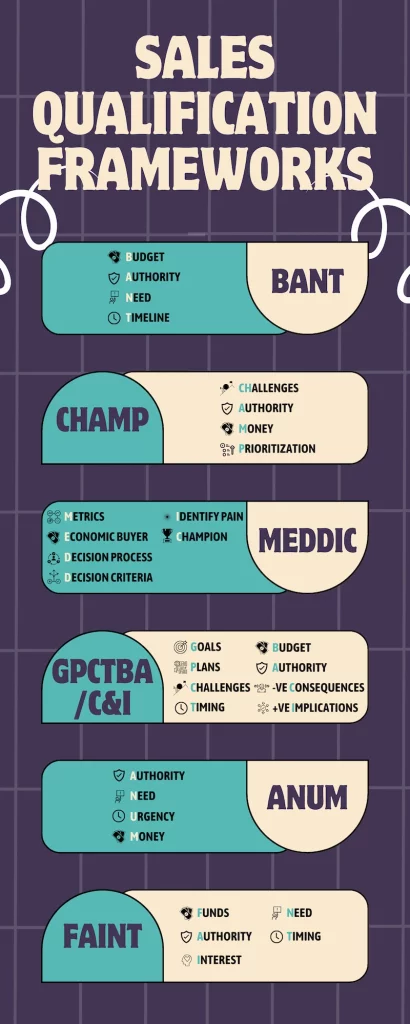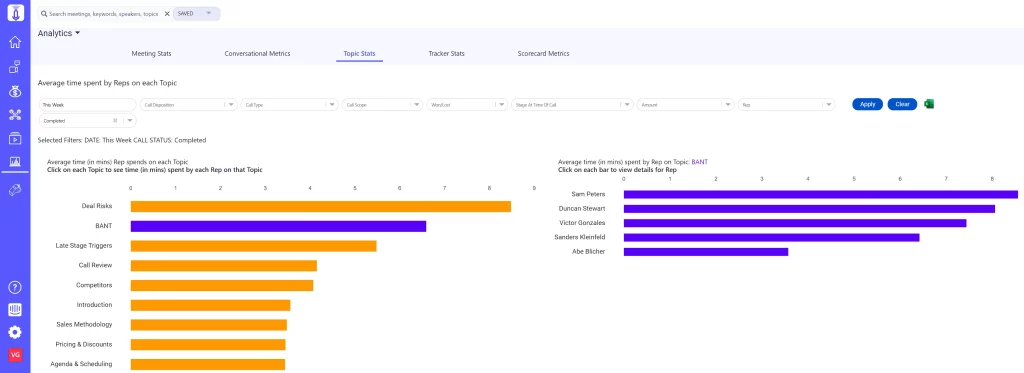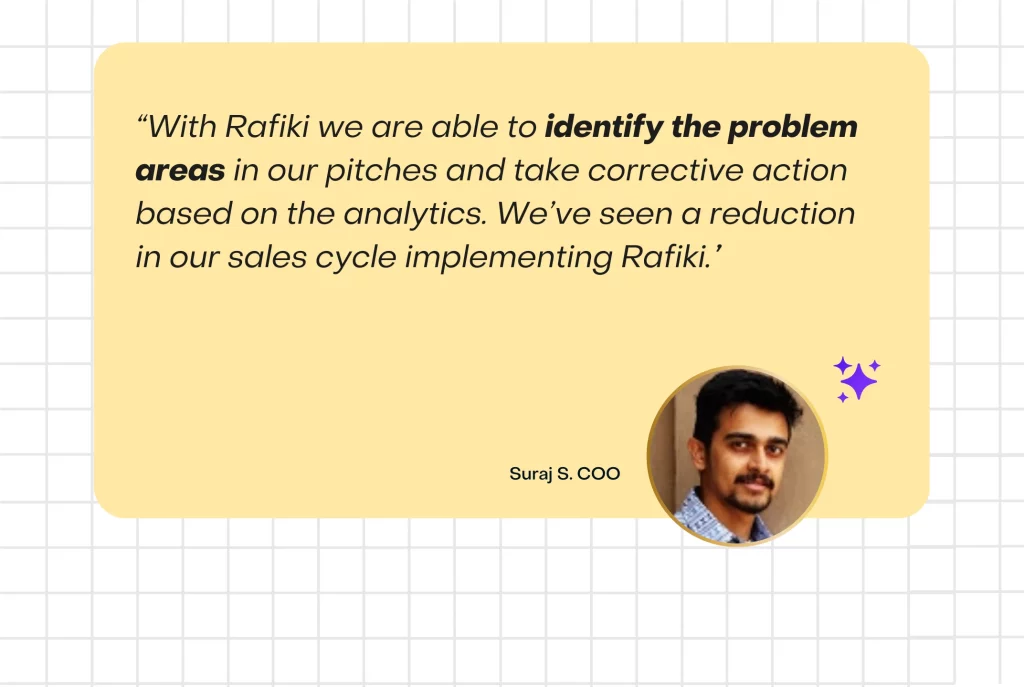Why Rafiki
Pricing


Pricing
Solutions

RevOps Leaders
Synchronize revenue generating functions

SDR Leaders
Get your team aligned and Coach your Reps 3x faster at scale

Sales Leaders
Unlock pipeline truth, drive confident forecasts

Ever felt like you're chasing shadows, pouring your heart 💙 into deals that were doomed from the start? That's the headache sales qualification process saves you from.
It's the compass 🧭 that guides you through the stormy seas of sales, pointing you towards prospects with real conversion potential. By matching prospects to your ideal customer profile (ICP), you're not just shooting in the dark; you're a sniper with a clear target.
This isn't just about making your close rates soar and streamlining time efficiency; it's about making every sales effort count.
Qualifying prospects isn't just a step in the process; it's the foundation of a thriving sales strategy.
Imagine a world where your close rates hit the roof 🎯, customer experiences are tailored to perfection 💯, and retention rates climb 📈. This utopia is within reach when you focus on qualified prospects. It's about honing in on those who align with your value proposition, cutting through the noise to find the gold.
Moreover, recognizing unwinnable deals early on saves precious time and resources, allowing you to sidestep futile pursuits.
Diving into the heart of qualifying prospects reveals a multifaceted process that begins with defining your ICP. This foundational step sets the stage for what comes next: lead scoring, deep-dive prospect research, and strategic questioning.
These elements are like pieces of a puzzle 🧩, each critical in painting the full picture of a potential sale. Defining ICP, lead scoring and prospect research all heavily depend on your business context, so let's dive into the strategic questioning step.

Central to streamlining this process are various frameworks, each with its unique approach.
Let's briefly explore some of these frameworks:
Each framework has its strengths and is suited to different sales scenarios, but the key is to find the one that aligns best with your target market. You can set up the framework of your choice in Rafiki and track whether your reps are diligently following it.

Beyond frameworks, it's crucial to recognize that customers have needs at multiple levels: company 🏢, department 👥, and individual 🧔. A nuanced understanding of these needs ensures that sales efforts are not just targeted but deeply relevant.
Identifying inconsistencies ⚠️ in prospects' responses is another critical element, acting as a red flag that warrants closer attention. Smart questions are your best ally in this endeavor, helping to peel back layers and assess priorities. With Rafiki, you can set up qualifying questions and keep track of whether your reps are actually asking the right questions.
Observing 👀 not just what prospects say but how they say it offers additional insights into their genuine interest. Building trust with reluctant prospects is an art, requiring transparency and a genuine effort to understand their needs.
The journey through sales is a continuous loop 🔁 of learning and adapting. Differentiating between prospects and leads can often be a source of frustration. However, this differentiation is key to focusing efforts on the most promising opportunities. Analyzing why leads didn't convert is invaluable, turning lost opportunities into learning experiences that refine your targeting and processes.
Tracking and analyzing data on lost leads, including company size and reasons for choosing competitors, helps in refining your sales focus. It's about understanding patterns and adjusting your approach accordingly.
Furthermore, specializing your sales team into roles focused on qualifying prospects and others on closing sales can significantly enhance efficiency. This division ensures that each team member plays to their strengths 💪, streamlining the sales process from initial contact to closing.
One of the clearest indicators of an effective sales qualification process 🖲️ is the productivity of your sales reps. If your team spends more time engaging in meaningful conversations with potential leads rather than chasing down dead ends, it's a strong signal that your qualification process is on point. Using Rafiki’s Smart Call Scoring, you can objectively measure how meaningful your reps’ conversations with prospects turn out to be.
Another key indicator is the success 📈 of your customers. When clients not only express satisfaction 💙 with your product but also achieve tangible success and value that far exceeds their investment, it's evident that your focus on qualifying the right prospects is paying dividends. This success often translates into long-term partnerships and word-of-mouth referrals, amplifying your sales efforts. Setting up custom topics in Rafiki to track will help you lock on to customer delight ❤️.
Shorter sales cycles 💲🚲 also hint at effective qualification strategies. If your team is consistently moving prospects from initial contact to close more swiftly than before, it suggests that your qualifying questions and criteria are efficiently identifying the most promising leads. This efficiency not only boosts your sales numbers but also enhances the overall productivity of your sales force. With Rafiki, Leadle Consulting was able to significantly reduce their sales cycle.
Here's what Suraj S, COO of Leadle Consulting said about Rafiki -

Lastly, accurate sales forecasting is a testament to a well-oiled qualification machine. When your predictions about deal closures and their timelines become increasingly precise 🎯, it demonstrates a deep understanding of your sales funnel's dynamics. This accuracy is crucial for strategic planning and resource allocation, ensuring that your sales team is always one step ahead.
As we've seen, sales qualification is a crucial factor in driving revenue growth and improving close rates.
By focusing on prospects that fit your ideal customer profile, you can provide personalized experiences and build long-term customer relationships. AI-driven platforms like Rafiki play a significant role in optimizing sales processes by offering advanced features such as Smart Call Summary, Topic Tracker, and Smart Call Scoring.
Explore how Rafiki can enhance your sales qualification process today 👇🏽
Focus Only on the Right Prospects